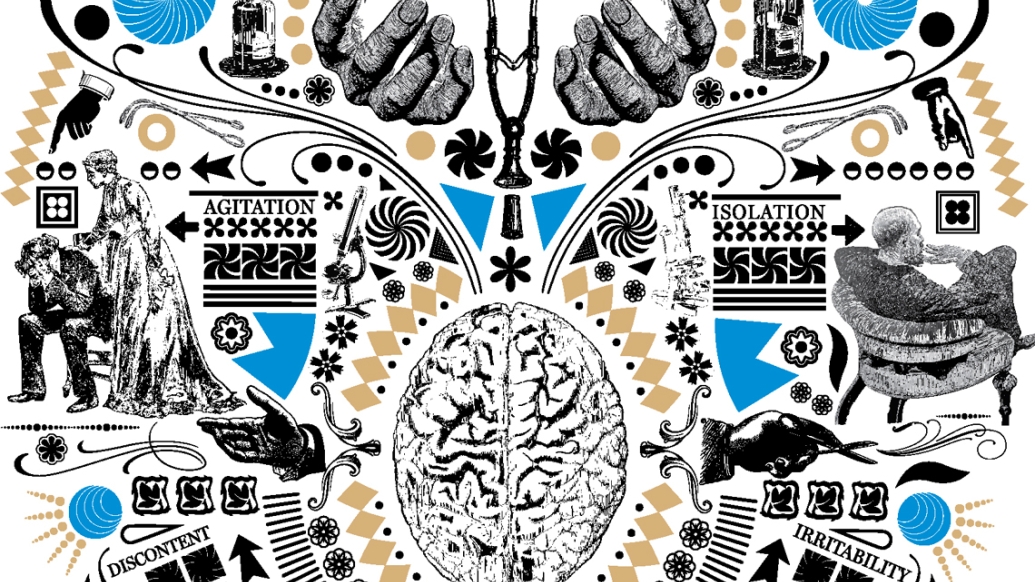
In the U.S., one in four doctors suffers from depression, and 300 to 400 physicians commit suicide every year. Residents and early-career doctors are especially affected, potentially from their experiences as medical students and the high level of responsibility they gain. Srijan Sen (M.D. and Ph.D. 2004), the Frances and Kenneth Eisenberg Emerging Scholar in the Taubman Institute and associate professor of psychiatry, is the senior author of a recent article in the Journal of the American Medical Association that examines this phenomenon by analyzing data collected over the course of 53 years. The team of researchers conducted a systematic review of studies and discovered a 28.8 percent prevalence of depression or depressive symptoms in residents — a prevalence that has been increasing with each calendar year.
We recently spoke with Sen about what these results mean for physicians across the country. Read Sen's full article at The JAMA Network.
The meta-analysis looked at studies from 1962 through 2015. Were there any noticeable trends throughout those five decades?
We found that the prevalence of depression seemed to increase by a small (.5 percent per year) but significant amount over time. This increase was surprising, especially because measures designed to improve working conditions and patient safety, such as duty hour limitations, have been put into place over the past two decades.
Why are new doctors more susceptible to depression?
Before residency starts, the level of depression among these training physicians is similar to the level in the general population. So it does not seem like people going into medicine are inherently more susceptible than others to depression. That said, there are individual (high neuroticism, history of depression and some genetic variants), demographic (female gender and foreign birth) and residency factors (long work hours, poor learning environment) that associate with higher levels of depression during residency.
Doctors who experience depression have been stigmatized for years. Why does this stigma exist, and how do you hope this research will affect it?
My hope is that this work demonstrates to any doctor struggling with depression that they are not alone and that many of their colleagues are struggling in the same way. I also hope that the advances our field is making in understanding the genetic variation and brain circuit changes underlying depression help to eliminate the ongoing stigma and clearly demonstrate that depression is just as biological of a disease as high blood pressure, diabetes, cancer and other pathologies that don't carry the same stigma.
How can young doctors seek medical treatment throughout their careers without feeling the full force of that stigma?
Residency programs are finding ways to provide low-cost and confidential access to mental health professionals for residents. In addition, there are now web-based and mobile tools that have been proven effective in preventing and treating depression and can be accessed anonymously. For example, we recently published a randomized controlled trial demonstrating that a course of online cognitive therapy, administered through the free MoodGym website before the start of residency, significantly reduced the proportion of doctors who became depressed and suicidal during residency. Along the same lines, there are some promising preliminary results utilizing mindfulness and meditation tools (such as the Headspace app).
What do these data indicate about the state of medical training?
In my view, the time has come to consider more fundamental changes to how we train physicians. As our medical system has become increasingly complex, a growing proportion of resident time is being spent on activities that are not fundamental to their training but necessary to keep our clinical operations running efficiently. We need to think creatively about how to nudge the focus of residency away from clinical service and back towards education while ensuring that patients still receive the care that they need.
Why is it important to act on this new information?
There is a strong link between depression in doctors and the quality of care that they provide for their patients. Residents are the first-line providers for so many of the patients in the United States, especially those coming from underserved communities. Improving the mental health of residents holds great promise for improving the care that our patients receive.
Thomas L. Schwenk (M.D. 1975), professor emeritus of family medicine and of medical education, and dean of the University of Nevada School of Medicine in Reno, penned an editorial to accompany Sen's paper. Read it on the JAMA Network.





